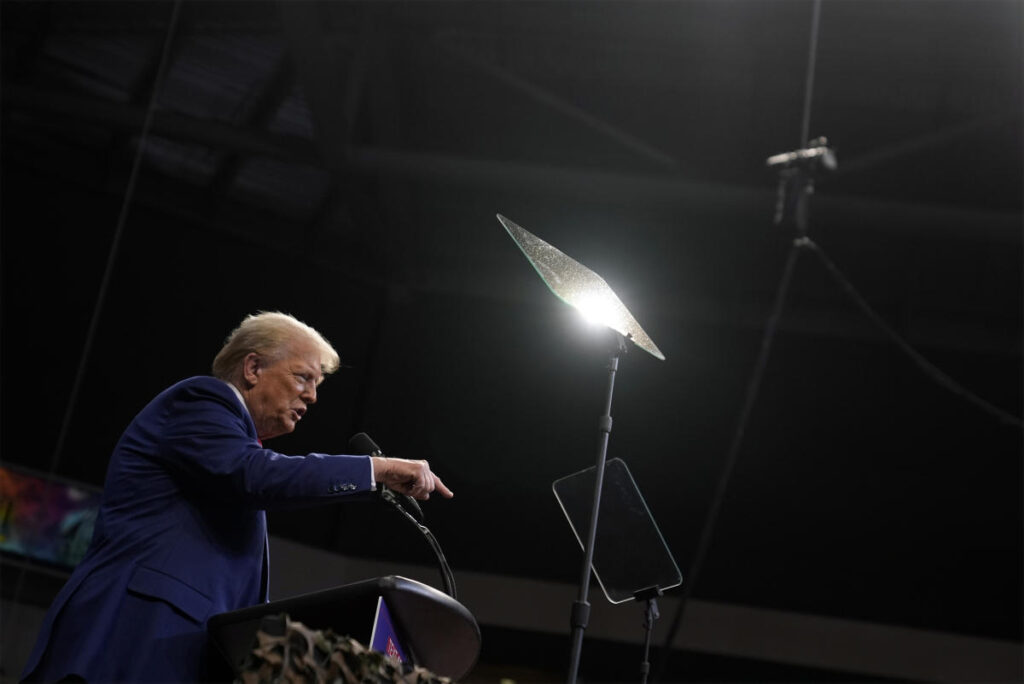As 2023 draws to a close, the landscape surrounding Donald Trump’s legal troubles presents an intricate view of the intersection between politics and the judicial process. The year that began with expectations of crucial court proceedings for the Republican presidential nominee ends without a clear resolution, leaving voters and the legal community grappling with the implications of unresolved charges in two significant cases. The first stems from allegations of Trump’s mishandling of classified documents, while the second revolves around his actions attempting to overturn the results of the 2020 presidential election. As the election approaches, these cases loom large, suggesting that the stakes extend beyond just the presidency, potentially encroaching upon Trump’s personal freedom amid ongoing legal battles.
The classified documents case against Trump is marked by serious allegations that highlight national security risks. Prosecutors assert that Trump not only hoarded classified materials but also recklessly shared sensitive information, including specific military plans and details regarding nuclear capabilities. Evidence supporting these claims includes audio recordings and surveillance footage that portray Trump engaging in deceptive practices concerning the handling of classified documents. The perception among legal observers is that this case represents the gravest threat Trump faces among the four criminal cases he is involved in, primarily due to the nature of the allegations and the stark implications for national security.
Further complicating matters is the involvement of Judge Aileen Cannon, who has been scrutinized for her management of the case. Appointed by Trump, Cannon’s limited experience and prior controversies regarding her decisions create skepticism within the Justice Department about the fairness of the proceedings. Her decision to allow a backlog of defense motions and to entertain seemingly unsubstantiated legal arguments has drawn criticism, leading to an indefinite postponement of the trial process. The situation escalated with her controversial conclusion in dismissing the case, which could significantly alter the trajectory of the prosecution and has raised concerns about the potential implications for judicial consistency and the rule of law.
The election interference case offers a different layer of complexity, wherein prosecutors highlight Trump’s extensive efforts to undermine the election integrity and pressure key officials. This case reveals a calculated and persistent campaign to influence the certification process, particularly focused on then-Vice President Mike Pence. The intricacies of this case, compounded by constitutional questions surrounding presidential immunity, place it within a legally ambiguous framework. As the case unfolds, it becomes evident that prosecutors face significant hurdles associated with the scope of legal protections afforded to presidents while in office, rendering the pathway for prosecution far from straightforward.
The Supreme Court’s interventions have brought about critical developments, particularly regarding the question of presidential immunity. Their ruling conferred substantial legal protections on former presidents for acts taken within the scope of their official duties, significantly narrowing the potential charges against Trump. This landmark decision created a stark split opinion among the justices, igniting debates over accountability and the interpretation of constitutional protections. Dissenting justices expressed concerns that such a ruling undermines the principle of equality before the law, emphasizing the contentious nature of the legal battle surrounding Trump’s actions while in office.
As the legal landscape continues to evolve, the future of Trump’s cases remains highly uncertain. Smith’s appeal against Cannon’s dismissal may eventually reach higher courts, which could lead to a reassessment of the legal rationale applied and potentially significant ramifications for the Justice Department’s operational framework. Concurrently, the election interference case is poised to advance, albeit with inherent delays and uncertainties tied to the Supreme Court’s ruling. With the election on the horizon and no trials expected to conclude before voters head to the polls, both cases will undoubtedly play a vital role in shaping the political narrative and the electoral context for Trump’s candidacy, raising profound questions about justice, accountability, and the rule of law as America approaches a climactic political moment.

